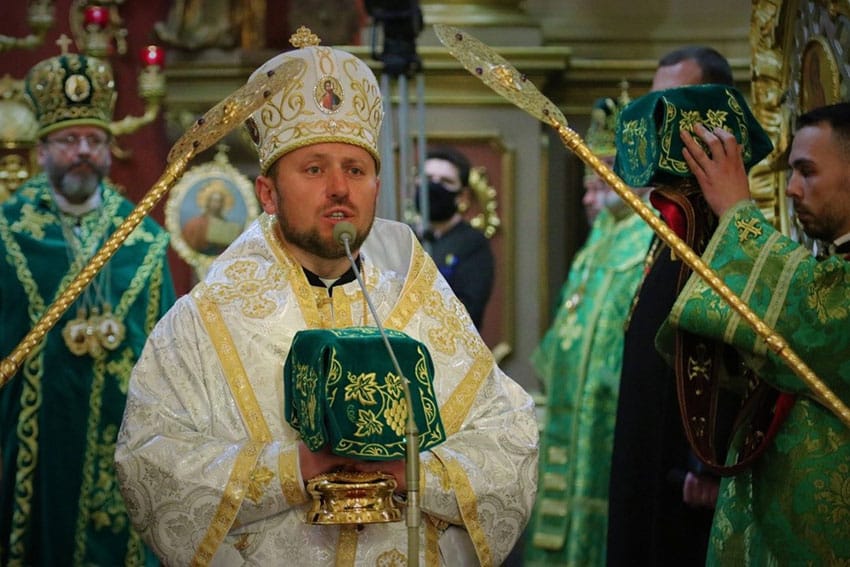
The Ukrainian Catholic Church in Australia will switch from the Julian to the Gregorian calendar, sharing the feasts of Easter and Christmas with other Catholics according to a degree by Bishop Mykola Bychok published on 22 March.
The move follows resolutions promulgated by the Ukrainian Greek Catholic Patriarch Sviatoslav Shevchuk on 6 February.
Ukrainian Catholics will now no longer celebrate Christmas on 7 January, but join Roman Catholics on 25 December.
In the formal declaration posted online, Bishop Bychok announced that the Eparchy of Saints Peter and Paul, Melbourne, responsible for Australia’s Ukrainian Catholics, will adopt the Gregorian calendar for both moveable and immovable feasts.
The change will take effect from 1 September 2023 the first day of the liturgical year for churches with Byzantine heritage.
Previously the eparchy has followed the Julian calendar, which is 13 days behind the Gregorian, and is used by the Russian and Ukrainian Orthodox churches, as well as Ukrainian Catholics.
“I pray the Good Lord to grant our Eparchy his grace for a smooth transition to the Gregorian Calendar,” the decree said.
Mitred Archpriests Simon Ckuj, protosynkellos of the eparchy and parish priest of St Andrew’s Ukrainian Catholic Church, Lidcombe, said that for many people the news would be “difficult and very emotional.”
But parishes would find it easier to conduct the great feasts, in particular, with the support of the Good Friday holiday.
“Nevertheless, the emotional attachment to the past remains. But the calendar isn’t tradition, it’s a mathematical and astrological calculation,” he said.
“We are not giving up anything, in fact it’s a way of making our traditions more relevant in Australia today.
“All of us are called to accept in humility the directions that have been given by the church and to work together in making the new calendar work for us. It requires an open and humble heart.”
The Russian invasion of Ukraine has prompted a wide-ranging discussion in religious and civil circles about changing the church calendar, due to the perception that the Julian calendar is associated with the Russian Orthodox Church.
Some Orthodox churches, including the Greeks, adopted a hybrid calendar called the “revised Julian” in 1923, in which fixed feasts follow the Gregorian calendar while retaining the traditional Orthodox mode of calculating the dates of Holy Week.
